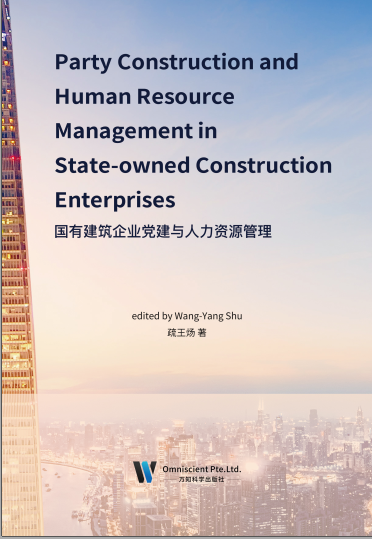
Preface
State-owned enterprises are an economic form that has existed in China for a long time. They are the economic pillars of the ruling party's public governance. They are the backbone of the development of socialism with Chinese characteristics. The construction industry is the vanguard of domestic infrastructure construction, and also a pioneer of the "going out" strategy and the "Belt and Road" construction. The Nineteenth National Congress of the Communist Party of China has made a series of major deployments on the construction of a modern economic system, especially "strengthening the construction of infrastructure networks such as water conservancy, railways, highways, water transport, aviation, pipelines, power grids, information, logistics, etc." Entered a period of important strategic opportunities.
State-owned enterprise corporate culture and party building are unique characteristics of China's state-owned enterprises, a characteristic product of the combination of China's political and economic forms, and an important link to ensure political, economic, and social stability. General Secretary Xi Jinping emphasized that comprehensively and strictly governing the party and strengthening party building are not special, there are no exceptions in state-owned enterprises, they can only be strengthened and not weakened. Therefore, this book comprehensively expounds and analyzes the party building and human resource management of state-owned construction enterprises from the contents of six chapters, analyzes the current state-owned enterprise culture and the main constraints of party building work in state-owned construction enterprises, explores solutions, and strengthens the party's leadership. It is of great significance to explore the innovation of the theoretical system of party building work at the grassroots level and lead the better development of construction enterprises.
前言
国有企业是我国一直以来就存在的经济形态,是执政党进行公共治理的经济支柱,是中国特色社会主义发展的中坚力量。建筑行业是国内基础设施建设的排头兵,也是“走出去”战略和“一带一路”建设的先行者。党的十九大曾关于建设现代化经济体系做了一系列重大部署,特别是“加强水利、铁路、公路、水运、航空、管道、电网、信息、物流等基础设施网络建设”等,使建筑业进入了重要的战略机遇期。
国企企业文化及党建是我国国有企业独有的特色,是我国政治形态和经济形态相结合的特色产物,也是保障政治、经济和社会稳定的重要纽带。习近平总书记强调,全面从严治党、加强党的建设在国有企业没有特殊、没有例外,只能加强,不能削弱。因此,本书从六章内容对国有建筑企业党建与人力资源管理进行全面阐述与分析,深入剖析当前国企文化及党建工作在国有建筑施工企业的主要制约因素,探究解决方法,对强化党的领导,探索基层党建工作理论体系创新,引领建筑施工企业更好的发展具有重要意义。

Wang-Yang Shu, male, the Han nationality, born in Zongyang Anhui Province in January 1973, bachelor degree, senior political engineer. He has been engaged in ideology and politics, corporate party building, corporate culture, human resources, trade unions, and the Communist Youth League. He has hosted more than 100 party and mass thematic and brand activities, which has had a greater impact in the industry. He has published more than 800 works and published documentary monographs. Tibet Carrying a Train. It has successively won the honorary titles of advanced individuals, outstanding ideological and political workers, outstanding cadres, outstanding party workers of state-owned enterprises in Hubei province, outstanding union workers in Hubei province, and May Day Labor Medal of Hubei Province.
疏王炀,男,汉族, 1973 年 1 月生,安徽枞阳人,大学本科,高级政工师。曾从事思想政治、企业党建、企业文化、人力资源、工会、共青团等工作,主持 100 多场次党群专题和品牌活动,在行业内产生了较大影响,发表作品 800 余篇,出版纪实文学专著《背着火车上西藏》。先后荣获中国铁建企业文化建设先进个人、优秀思想政治工作者、优秀团干部、湖北省国有企业优秀党务工作者、湖北省优秀工会工作者、湖北省五一劳动奖章等荣誉称号。